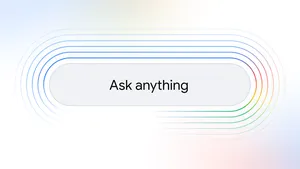4 books to help you learn the history of Juneteenth

The United States celebrates Juneteenth, the country’s newest federal holiday, on June 19. This date commemorates the emancipation of all enslaved people across the country; however, the history of the abolishment of slavery in the United States is a tangled web of politics and war, with the people most affected often the last to be considered.
On January 1, 1863, in the third year of the Civil War, President Abraham Lincoln issued the Emancipation Proclamation, which freed those enslaved people held in Confederate states. Two years later, in January of 1865, the 13th Amendment was passed by Congress, abolishing slavery across the U.S. But it wasn’t until months after the 13th Amendment passed that notice of the end of slavery reached the farthest corners of the country. On June 19, 1865, Major General Gordon Granger traveled to Galveston, Texas to announce the end of the Civil War, and with it, the end of slavery. The 19th of June – Juneteenth – came to be celebrated, first in Texas, then across the U.S., as the nation’s second Independence Day. President Biden declared Juneteenth an official federal holiday in 2021.
As you celebrate this Juneteenth, Google Books has resources to offer at no charge for shared reflection with your friends and family.
"Celebrating Juneteenth," Amanda Jackson Green, 2022
Wondering how to talk to kids about Juneteenth? This illustrated book, aimed at children between the ages of 7-9, can help get the ball rolling.

"The Freedmen’s Book," Lydia Maria Child, 1865
The author dedicated this collection of works written by abolitionists and former slaves to the Freedmen, “...with the hope that those of [them] who can read will read it aloud to others, and that all of [them] will derive fresh strength and courage from this true record of what colored men have accomplished, under great disadvantages.”

"The Rising Son, or, the Antecedents and Advancement of the Colored Race," William Wells Brown, 1874
A contemporary of Frederick Douglass, Dr. William Wells Brown was a prolific author and ardent abolitionist. His book, Clotel, is considered the first novel published by an African American.

"A Domestic Cook Book," Malinda Russell, 1866
“A Domestic Cook Book” is the first cookbook published by a Black woman. Malinda Russell, a free woman born to the daughter of an emancipated slave, published this collection as a fundraising effort to return from Michigan to Tennessee after being robbed, threatened and driven out of her home, years after slavery was abolished in the state.

Juneteenth today
Juneteenth is a multifaceted holiday drawing on all the complexities of history as well as modern-day issues in the U.S. Together we celebrate the perseverance and indefatigable spirit of enslaved African Americans and the generations of families that were born of their courage.





